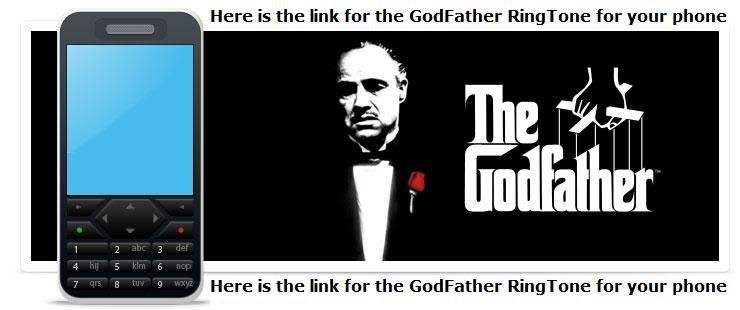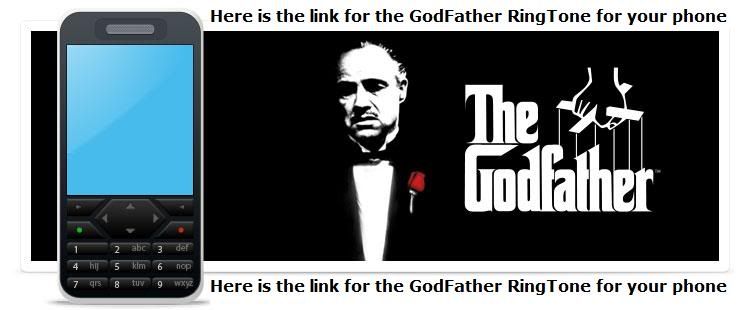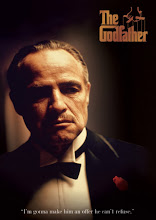It was back in 1972 that Adel Darwish, author of several books on Saddam Hussein, and now with Middle East magazine, met Saddam Hussein for the first time.
"I did not know his name at the time," Darwish told IPS in an interview Tuesday. "I was just told that I would be meeting Mr. Deputy."
It was at a film festival in Baghdad when the film 'The Godfather' was shown. The celebrated film won three Oscars and came later to be known as 'Godfather I' in a trilogy.
"Saddam Hussein was very impressed with the film," Darwish recalls. "Some of us sat together over whisky, and I remember Saddam had very much more than anyone else. He was smoking his heavy cigar, and for 90 minutes he sat talking about the 'Godfather.'"
A sign of times to come, perhaps, though Darwish could not see this then.
Darwish met Saddam Hussein five times, or at least he thinks he did. The last meeting came in 1989, and is the one he has some doubts about. "I think it was Saddam, though it might have been a double," he says. The eight-year war with Iran had just ended the year before, and security around Saddam -- certainly the real Saddam -- was particularly heavy.
But it definitely was Saddam that Darwish met on another occasion in 1982. "Because he spoke of the film again, and remembered the time we talked about it," Darwish says. The film had clearly made an impression on Saddam Hussein long beyond that particular evening of cigars and whisky.
"A man who doesn't spend time with his family can never be a real man," says Godfather Vito Corleone (Marlon Brando).
Saddam Hussein believed he ruled with the hand of a family man. "He thought he was providing the nation with justice undeliverable under international law," Darish says. In later years "Saddam Hussein came to see all of Iraq as his family," says Darwish. "And if anyone went against the family, he would be a traitor to the family." And dealt with as such.
Under the control of the man who came to see himself as patriarch of a nation, Iraq came to be "like Chicago in the thirties," Darwish says, although 'Godfather was set in New York in the forties. What was seen by others as the ways of the mafia were to him the way of the family.
Saddam Hussein was evidently convinced his repressive ways were for the good of Iraq, and even admired by Iraqis. "Saddam was talking about how the Godfather put the interests of his family -- as he saw them -- before anything else."
'The Godfather' film re-invented the gangster genre, by portraying the gangster figure as a family man bound by honor and tradition. The police, the courts do not hand out justice. The Godfather does. And that 'justice' can be swift and ruthless. Inevitably, Saddam Hussein did not see himself as a ruthless dictator; he was only the head of the family handing out swift justice.
"There was this alarming scene in the film where Michael (the Godfather's son) in his U.S. Marine uniform tells his girlfriend of the family's violent ways," Darwish says. "Saddam thought that the girl was outwardly scared but was actually sexually aroused, because women admire strong men."
Puffing at his cigar that evening, Saddam said nations are just like women.
But nations are not, and nor are men like Saddam as fatally attractive to women as they project to be, a new study into mafias and their godfathers indicates.
Girolamo Lo Verso, a psychotherapist from Sicily where the mafia arose, concludes after ten years of studying mob bosses that many of these godfathers actually have "food disorders, anxiety, depression and sexual problems." -- a theme of a recent mob comedy, 'Analyse This!' and a sequel with Robert DeNiro and Bill Crystal.
In his newly published book 'La Psyche Mafiosa', Lo Verso says that one godfather "went to see a psychiatrist because he couldn't cope with his son's homosexuality. He had hopes of passing on the family business to him. But the boy rebelled and came out of the closet."
Nor are godfathers as virile as they are projected to be, in cinema or for real. "Real Mafiosi are more interested in power and being in command than sex," he says. "They have hurried sex with their wives in order to have children, but it's not really a situation of passion," Lo Verso told The Independent.
Whatever his sex life, Saddam Hussein appears to have been turned on more by power. "It became so easy when he came to control the security apparatus," Darwish says. "It became easy to take charge of law and order by brute force." And however repressive, the disappearance of Saddam and his regime has, in Saddam's metaphor, left a nation orphaned.
In the film, the presiding patriarch is ultimately succeeded by his youngest son Michael (Al Pacino), who eventually becomes even more ruthless. Not unlike Saddam's sons. In Iraq as in the film, like father, like son.
The cinematic Godfather is a man who has his way because he knows of no other. He gets his godson-singer a contract in Hollywood with the famous words: "We'll make him an offer he can't refuse." And Michael explains to his girlfriend how his father persuaded a band leader to give the singer a contract. One of the don's thugs "held a gun to his head, and my father assured him that either his brains -- or his signature -- would be on the contract."
In the end George Bush made Saddam an offer that he thought Saddam could not refuse. But he did, because it was an offer he could not accept. Godfathers do not take orders.
Do you think Mr Obama deserved the Nobel Peace Prize?
The GodFather Video
iPhone / iPhone 3G / iPhone 3Gs Stereo Handsfree Headset EarPhones HeadPhones
Wednesday, October 21, 2009
Sunday, October 18, 2009
What Puzo Godfathered 40 Years Ago
In 1969, an obscure middle-aged novelist and pulp magazine journalist named Mario Gianluigi Puzo hit the literary jackpot. He wrote "The Godfather," he later told Larry King, "to make money." By his own admission, it wasn't well written. "If I'd known so many people were going to read it," he famously said, "I'd have written it better."
How many people have read it? It can be said with some certainty that having sold between 20 million and 30 million copies, "The Godfather" is one of the best-selling books of all time. By most yardsticks, it is one of the top 10 best-selling works of American fiction. Four decades later, it's still selling, in a paperback edition from the New American Library.
The reasons for its enduring popularity aren't easy to pin down. Of course, Francis Ford Coppola's masterpieces, "The Godfather" and "The Godfather, Part II," brought a swarm of new readers, but the book had already sold millions of copies before the first film was released in 1972.
Those who read the novel today in search of a greater appreciation of the movies are bound to be disappointed; it quickly becomes apparent the book's success isn't based on literary merit. The late 1960s were the peak period of "novelizations"—easy-reading books aimed at fans of popular movies. Puzo, along with Michael Crichton, Peter Benchley and John Grisham, helped usher in an era when the novelization would precede, not follow, the film. Puzo had previously written critically praised but virtually unread novels about the Italian-American experience, most notably "The Fortunate Pilgrim"; with "The Godfather," he went from being a novelist to a novelizationist.
Wilfrid Sheed correctly described the prose of "The Godfather" as "speed writing clichés." One searches the novel in vain for the verbal poetry in the films, lines such as "Luca Brasi sleeps with the fishes" and "Leave the gun, take the cannolis." And yet, as the New Yorker's Pauline Kael noted in her review of the film, "There was a Promethean spark in Puzo's trash." What exactly was that spark?
Gay Talese, whose "Honor Thy Father" is perhaps the classic nonfiction book about the Italian mob, thinks it can be summed up in four syllables: "La famiglia." A friend of Puzo until his death in 1999, Mr. Talese says: "Mario didn't know much about organized crime, but he certainly knew how to depict an Italian family. Take away the gambling and the murder, and it's pretty much a straightforward story about how Italian-American families were assimilated into American culture." George De Stefano's "An Offer We Can't Refuse: The Mafia in the Mind of America" examines, among other things, the impact of "The Godfather" and how it reflects Italian-Americans. He says that "we saw our families in that book, and, for the first time, a great many Americans saw us. It wasn't a pretty image, or a tranquil one, but it was never dull, and it was new to most people."
Italian-American gangsters were a part of our popular culture long before Puzo's novel. "But it was Puzo's genius to turn them into family men," says Maria Laurino, author of "Old World Daughter, New World Mother: An Education in Love and Freedom." "All those elaborate passages in 'The Godfather' which describe the family patriarch presiding over weddings and baptisms and then ordering murders gave a new dimension to the image of the Italian father," Ms. Laurino notes. "Movies had always shown the murders but never told us that these men had daughters and godchildren."
The popularity of Puzo's novel caught America by surprise because it seemed to go against the grain of everything that was dominating the news of the time: the assassinations of Martin Luther King Jr. and Bobby Kennedy, Woodstock, Altamont, the moon landing, the Vietnam War. "In times of such social upheaval, who cared about the fortunes of a family of Italian-American immigrants?" asks Mr. Talese. As it turned out, just about everybody did. "I think there was a lot of unrest about the dissolution of the American family, and many Americans of other backgrounds were fascinated by the idea that they would kill to uphold their family values and traditions—appalled, but fascinated. Mario touched a nerve that most Americans didn't realize was even there."
Italian-Americans have always been ambivalent about "The Godfather." While the book and the films made it hip to have a name that ended in a vowel, there were many who wanted to consign Puzo to the lowest circle of Dante's Inferno for forever labeling organized crime as Italian. Historians of the early mob point out such names as Arnold Rothstein, Owney Madden, Meyer Lansky, Dion O'Bannon, Dutch Schultz (aka Arthur Flegenheimer) and Jack "Legs" Diamond, but in Puzo's novel, crime is treated as "La Cosa Nostra"—our thing.
If he isn't burning for that, Puzo is surely doing time in the Purgatorio for suggesting that Frank Sinatra owed his success to the Mafia. One horse's head in a movie producer's bed, and Puzo's Sinatra stand-in, Johnny Fontane, "went on to become the greatest singing sensation in the country." As if the greatest singer of popular standards in American music needed a godfather to put a gun to the collective heads of record buyers.
Perhaps, though, Puzo deserves a suspended sentence for his contribution to film rather than literature. The enormous success of the book poses an interesting question: Why didn't the descendants of Dante produce more first-rate writers in this country? The likely answer is that the grandparents of the great Italian-American film directors—Mr. Coppola, Martin Scorsese, Brian DePalma, Michael Cimino, Quentin Tarantino and others—came here unable to speak a new language and illiterate even in their native tongue. The younger generation found a new medium to turn the pulp of Mafia legend into art.
If Puzo wasn't a genius, he at least found a way to inspire genius. One might call him the Godfather of Italian-American film.
How many people have read it? It can be said with some certainty that having sold between 20 million and 30 million copies, "The Godfather" is one of the best-selling books of all time. By most yardsticks, it is one of the top 10 best-selling works of American fiction. Four decades later, it's still selling, in a paperback edition from the New American Library.
The reasons for its enduring popularity aren't easy to pin down. Of course, Francis Ford Coppola's masterpieces, "The Godfather" and "The Godfather, Part II," brought a swarm of new readers, but the book had already sold millions of copies before the first film was released in 1972.
Those who read the novel today in search of a greater appreciation of the movies are bound to be disappointed; it quickly becomes apparent the book's success isn't based on literary merit. The late 1960s were the peak period of "novelizations"—easy-reading books aimed at fans of popular movies. Puzo, along with Michael Crichton, Peter Benchley and John Grisham, helped usher in an era when the novelization would precede, not follow, the film. Puzo had previously written critically praised but virtually unread novels about the Italian-American experience, most notably "The Fortunate Pilgrim"; with "The Godfather," he went from being a novelist to a novelizationist.
Wilfrid Sheed correctly described the prose of "The Godfather" as "speed writing clichés." One searches the novel in vain for the verbal poetry in the films, lines such as "Luca Brasi sleeps with the fishes" and "Leave the gun, take the cannolis." And yet, as the New Yorker's Pauline Kael noted in her review of the film, "There was a Promethean spark in Puzo's trash." What exactly was that spark?
Gay Talese, whose "Honor Thy Father" is perhaps the classic nonfiction book about the Italian mob, thinks it can be summed up in four syllables: "La famiglia." A friend of Puzo until his death in 1999, Mr. Talese says: "Mario didn't know much about organized crime, but he certainly knew how to depict an Italian family. Take away the gambling and the murder, and it's pretty much a straightforward story about how Italian-American families were assimilated into American culture." George De Stefano's "An Offer We Can't Refuse: The Mafia in the Mind of America" examines, among other things, the impact of "The Godfather" and how it reflects Italian-Americans. He says that "we saw our families in that book, and, for the first time, a great many Americans saw us. It wasn't a pretty image, or a tranquil one, but it was never dull, and it was new to most people."
Italian-American gangsters were a part of our popular culture long before Puzo's novel. "But it was Puzo's genius to turn them into family men," says Maria Laurino, author of "Old World Daughter, New World Mother: An Education in Love and Freedom." "All those elaborate passages in 'The Godfather' which describe the family patriarch presiding over weddings and baptisms and then ordering murders gave a new dimension to the image of the Italian father," Ms. Laurino notes. "Movies had always shown the murders but never told us that these men had daughters and godchildren."
The popularity of Puzo's novel caught America by surprise because it seemed to go against the grain of everything that was dominating the news of the time: the assassinations of Martin Luther King Jr. and Bobby Kennedy, Woodstock, Altamont, the moon landing, the Vietnam War. "In times of such social upheaval, who cared about the fortunes of a family of Italian-American immigrants?" asks Mr. Talese. As it turned out, just about everybody did. "I think there was a lot of unrest about the dissolution of the American family, and many Americans of other backgrounds were fascinated by the idea that they would kill to uphold their family values and traditions—appalled, but fascinated. Mario touched a nerve that most Americans didn't realize was even there."
Italian-Americans have always been ambivalent about "The Godfather." While the book and the films made it hip to have a name that ended in a vowel, there were many who wanted to consign Puzo to the lowest circle of Dante's Inferno for forever labeling organized crime as Italian. Historians of the early mob point out such names as Arnold Rothstein, Owney Madden, Meyer Lansky, Dion O'Bannon, Dutch Schultz (aka Arthur Flegenheimer) and Jack "Legs" Diamond, but in Puzo's novel, crime is treated as "La Cosa Nostra"—our thing.
If he isn't burning for that, Puzo is surely doing time in the Purgatorio for suggesting that Frank Sinatra owed his success to the Mafia. One horse's head in a movie producer's bed, and Puzo's Sinatra stand-in, Johnny Fontane, "went on to become the greatest singing sensation in the country." As if the greatest singer of popular standards in American music needed a godfather to put a gun to the collective heads of record buyers.
Perhaps, though, Puzo deserves a suspended sentence for his contribution to film rather than literature. The enormous success of the book poses an interesting question: Why didn't the descendants of Dante produce more first-rate writers in this country? The likely answer is that the grandparents of the great Italian-American film directors—Mr. Coppola, Martin Scorsese, Brian DePalma, Michael Cimino, Quentin Tarantino and others—came here unable to speak a new language and illiterate even in their native tongue. The younger generation found a new medium to turn the pulp of Mafia legend into art.
If Puzo wasn't a genius, he at least found a way to inspire genius. One might call him the Godfather of Italian-American film.
Subscribe to:
Comments (Atom)




